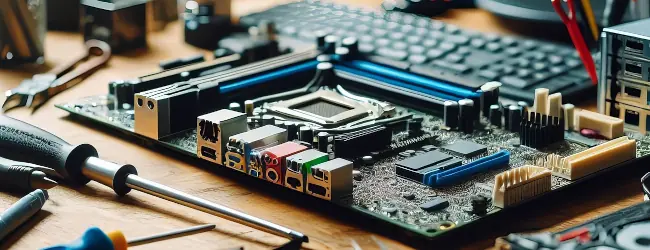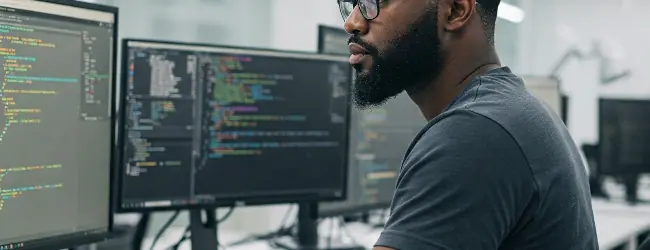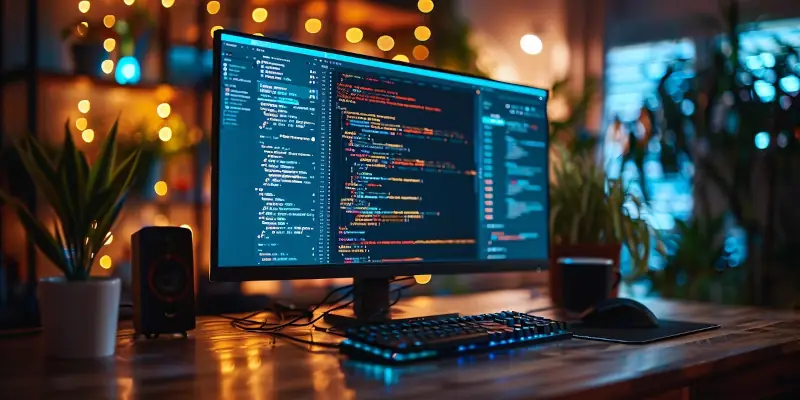In an earlier article (this article), I explained that we don’t have to understand the subconscious to solve mental problems. Instead, we can judge rationally based on the information that the subconscious provided. That dramatically reduces our inner burden.
To make it easier to understand, let’s see our mental system with an example of a computer system.
How to reduce the mental load
Sometimes, we want to decrease the burden on our minds. Many potential risks trouble us.
However, we cannot stop worrying. That exhausts us.

One reason is a belief that continuous thinking brings better solutions. That makes us focus only on risks and be indifferent to various unrelated opportunities.
After I started to live rationally, I realized we don’t have to keep thinking. If we think about it for 5 minutes and cannot come up with anything, we can decide to stop thinking and wait. Today, I will explain why.
Comprehending the mind as a computer
If you consider it for 5 minutes and cannot come up with an ideal solution, decide based on the information available at that point. The decision includes waiting.
That is more efficient and rational than just continuing to worry.
To explain why, let’s look at our mental system with an example of a computer system.

Our mental system is similar to a computer. There are specialized processing units, as follows:
- The CPU is consciousness. It has a small memory and powerful logical processing ability. When we encounter a new situation that requires a decision, it activates. It asks the subconscious for information about memory and sensation. Then, logically determine what to do based on the information.
- The chipset on the motherboard is subconsciousness. It connects and manages all devices, including the CPU. If logical judgment is required, it asks the CPU to decide. In that case, it also provides the CPU with emotions as a quick reference.
- Main memory, sensors, and other devices are organs of the body.
Thinking as a CPU
We are the CPU—consciousness. It means we can only perceive a small part of the body.
If there is no new situation that requires logical judgment, we can live unconsciously. In other words, the body could live even without consciousness.
The subconscious—the chipset on the motherboard—carries out many instinctive processes. For example, we cannot consciously stop our heartbeat. It indicates that the subconscious manages it; it is not us. Even if we hold our breath, when it becomes difficult, we end up breathing. When we touch something hot, we instinctively pull our hands away.

Those examples tell us we don’t control everything in our bodies. In other words, we don’t have to be so nervous about any changes around us. If necessary, the subconscious will notify us naturally.
All we need to do as the conscious is only the following:
- To ask the subconscious for the memory and sensation.
- To think and decide logically how to act based on the information that the subconscious provided.
That allows us to stop worrying and live a well-balanced life. Unnecessary parts are not needed.
The role of consciousness
The most significant feature and role of consciousness is to think and judge logically. No other organ can do it. In other words, as consciousness, we must be rational and decide as long as we are conscious.
If we are rational enough, we don’t have to think for a long time. This is because it always converges to one reasonable answer.
It is similar to executing a computer program. The output is always the same unless the situation changes, no matter how many times we execute.

Our logical thinking ability is strong if we have logical sense. In many cases, we can conclude in under 10 seconds. However, retrieving memories often requires time—sometimes, several minutes. Accessing the subconscious requires more time. That is why I say we can decide things in 5 minutes.
Rationally speaking, there are times when there is no answer and recursive problems that never get processed. Some situations cannot be decided. In such a case, we can do nothing but stop thinking and wait.
In other words, rationality allows us to wait. That reduces our wasted CPU usage. If the output is the same, there is no need to process it frequently. We can wait until a certain period or until the circumstances change. That is an efficient way to use the CPU.
How to deal with emotions
Interestingly, that allows us to live instinctively. Although this might sound contradictory, if we are rational enough, we start to live intuitively. This is because we no longer waste CPU usage. It means we increase the time we live unconsciously.
However, being instinctive doesn’t mean being irrational. Although many spiritualists insist on living intuitively, ironically, such an irrational spiritual teaching causes mental problems. Instinct decisions don’t matter; rationality allows an intuitive life. The superficial technique confuses us; the big picture is important.
If we are rational, emotions don’t affect us. This is because emotions are nothing more than past events. When we think consciously, it is always a new situation that requires a logical decision. The subconscious decided that the conscious needs to judge logically. That is why we become conscious.
Emotions are supplementary information that arises when the subconscious activates the conscious.

They are for emergencies. There are times when we cannot afford the time to decide logically. Logical judgment requires over 10 seconds. Sometimes, it takes minutes. However, there are times when it demands immediate decisions. We use emotions in such a situation.
However, if we give up rational decisions, we must rely on emotions. We must decide, or we will be exhausted from thinking. Thinking consumes a lot of energy.
That makes us rely on only emotions to judge.
To be precise, an emotional decision is easier than a logical decision. Logical thinking requires energy, but emotional thinking doesn’t. That is why we tend to be emotional if we are not taught how to judge rationally.
However, emotional judgment cannot create change. We need logical judgment for long-term improvement.
That teaches us the necessity of logical decisions. They progress our lives and prevent our mental confusion and emotional problems.
Conclusion
That is the mental system. An example of a computer system makes it easier to understand.
If we think about it for 5 minutes and cannot come up with anything, we can decide to stop thinking and wait.
This awareness might help you reduce your mental burden.
Thank you for reading this article. I hope to see you in the next one.


